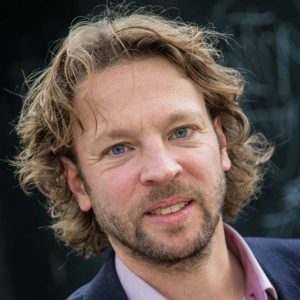The success of this view of man within economics has led it to take hold beyond economic thought: numerous fields are now considered through the lens of the homo economicus because of the success of this approach. That success is certainly worthy of note: the great leap in prosperity that the West has experienced is due in part to the rationalization of economic activity closely tied to the conception of man as a homo economicus.
However, this view of mankind has changed in the 20e century came under increasing criticism as economists became more aware of other factors driving human action, particularly the large place that emotions have in it. Behavioral economics plays an important role in this. Although the rationality of human action has come under criticism, economists continue to assume a human drive toward utility maximization. The underlying anthropology of this assumption is strongly individualistic; the inherent social component of human existence receives too little attention.
Among current economists, this anthropological assumption is increasingly under criticism; coupled with this, a need is arising for an explicit normative framework for economics, specifically focused on the flourishing of humans within the limits of the earth. This does not imply a complete replacement of the homo economicus; indeed, this approach does have merit. However, there is a need for a broader vision of man, which includes both the rationality and the relationality of man.
Gay Florens
To this dialogue, we as the Institute of Leadership and Social Ethics (ILSE) want to contribute. Specifically, we propose a relational anthropology, under the title gay florens. Central to this proposal is the hypothesis that humans have four fundamental "drives," namely 1) the desire for survive, 2) the need for control of the living environment (the homo economicus best fits this drive) 3) the desire for affiliation with others (people, nature) and 4) the need for meaning.
It is important to do justice to these fundamental human drives in economic thinking about human beings, and thereby to avoid the excessive reduction of the homo economicus avoid. The goal is to develop an economic anthropology in which humans are viewed as complex beings living in a network of trusting relationships. With the emphasis on human flourishing, account is taken of the fact that there are deep human needs beyond enlightened self-interest; it is important that these be factored into economic modeling.
Here it is important to realize that man is not a mixture of different parts, but that each has a distinct personal identity. Thereby, it is our hypothesis that the foundation of the gay florens is formed by the virtues of faith, hope and love. We regard these virtues not merely as products of culture, but as universal dispositions that define being human. In doing so, we advocate a broad conception of these virtues. 'Faith' is about the consciousness of identity as a backward-looking virtue. 'Hope' is the ability to see perspective and connects the present to the future. 'Love' is about a commitment of the will to the truly good for the other and thus has the quality of connection.
In summary, man is a searching, expectant and relational being. The connection between these virtues is formed by the concept of the gay florens. Through this concept, however, we do not want to reduce human complexity to the identified virtues of faith, hope and love, as if human beings are nothing more than that. However, the concept does recognize that humans are largely dependent on others and calls for taking responsibility for others who in turn depend on us. In doing so, the concept possesses a potential transformative power, which can bring about a change in the way we understand our humanity and relationship to others and the world.
Other approaches
The gay florens concept does not stand alone. In the international context, there are more pluralistic approaches, such as Re-thinking Economics and the Netzwerk Plural Ökonomik. There are also initiatives in the Netherlands that can be considered similar or complementary. The cooperative Learning for Tomorrow is committed to embedding sustainable development within education; as ILSE, we are working with them to raise awareness of the human-centered approach in higher economic education. Another initiative is being realized by CSR Netherlands. MVO Netherlands is committed to the transition to a new economy, by organizing projects and events around seven themes, such as the sustainability festival "New Economy" that takes place annually. Also noteworthy in this regard is Kees Klomp's professorship "Meaning Economy" at the Hogeschool Rotterdam, which is committed to a new economic narrative, and the Thrive Institute through which he is shaping the pursuit of a meaning economy.
Conclusion
With our proposal for the new humanity of the gay florens we aim to raise awareness around the anthropological assumptions hidden in economic thinking. We are critical of the one-sidedness of the homo economicus and argue gay florens for as a complement to this. In this model, we consider human beings as having a natural capacity to seek meaning ("faith"), project his/her desires into the future ("hope") and relate to others in a meaningful way ("love").
Read the full white paper "Recentering Economics: The Human Person in New Economic Thinking."
Evangelical Theological Faculty, Leuven | Institute of Leadership and Social Ethics
Sint-Jansbergsesteenweg 95-97 | 3001 Leuven, Belgium | +32 16 20 08 95 | info@etf-ilse.org | www.etf-ilse.org

